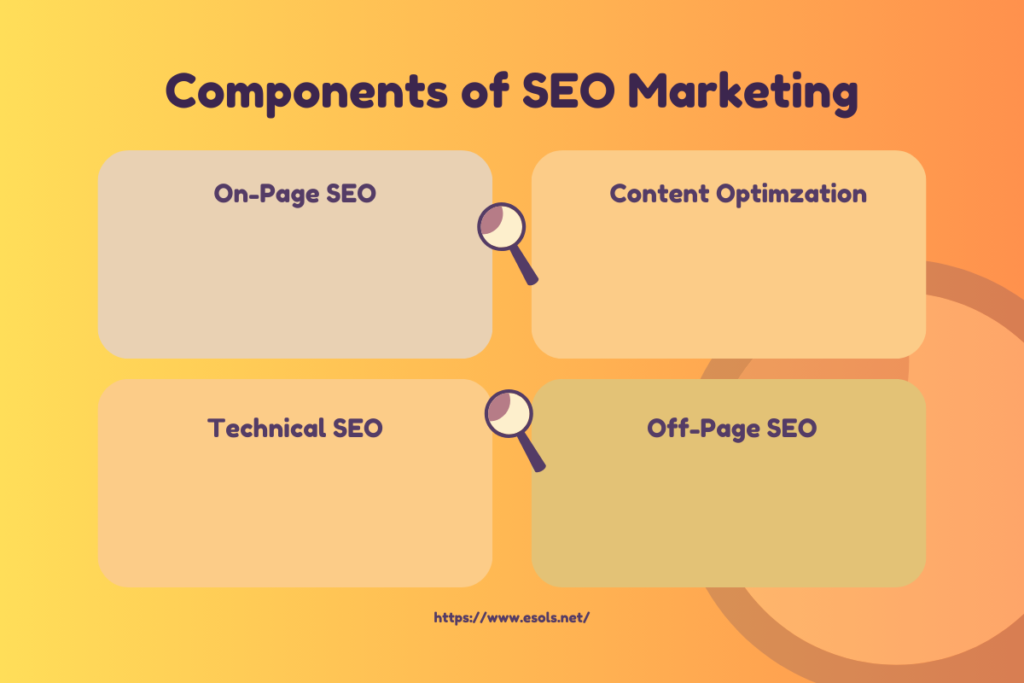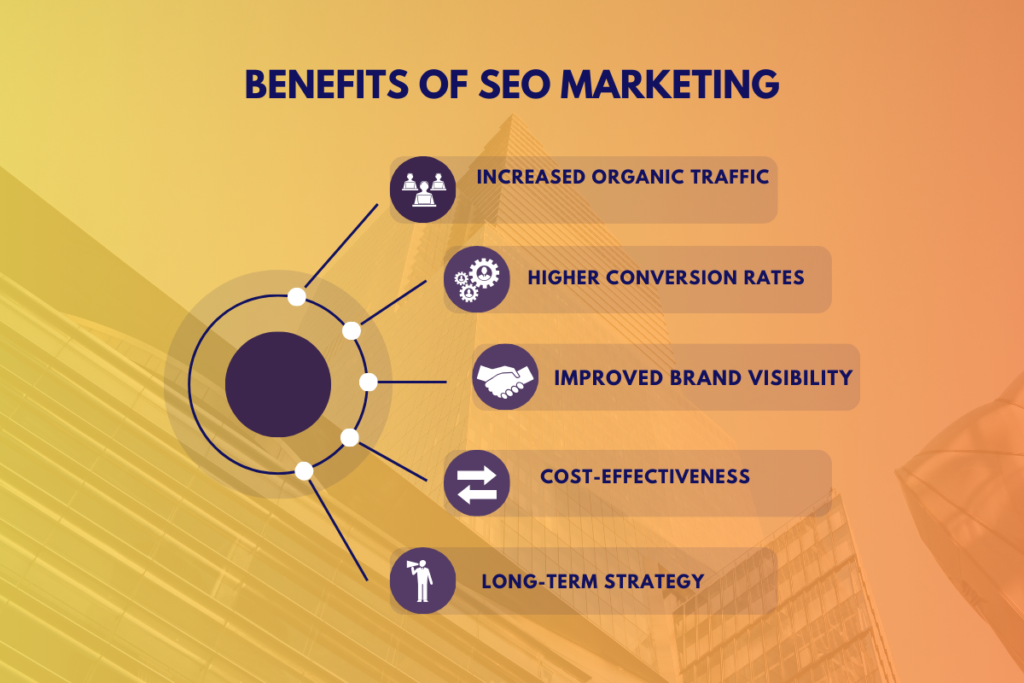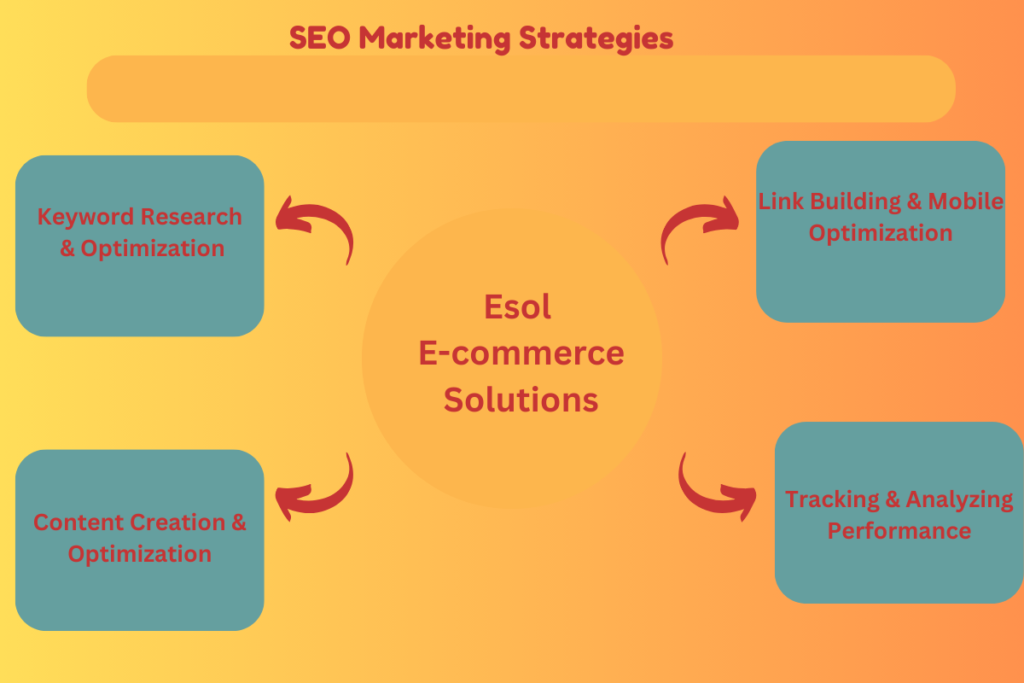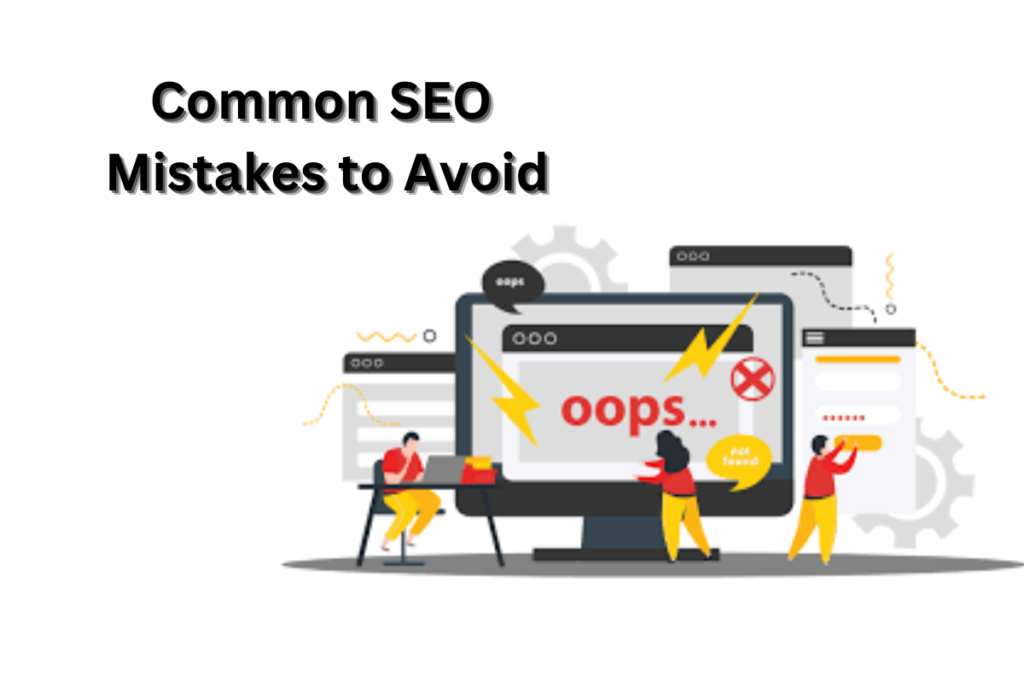In the vast landscape of digital marketing, SEO marketing,, stands out as a cornerstone strategy for enhancing online visibility and driving organic traffic to websites. It’s a multifaceted approach that involves optimizing various elements both on and off a website to improve its ranking on search engine results pages (SERPs).
Table of contents
How Search Engines Work
Search engines like Google, Bing, and Yahoo utilize complex algorithms to crawl, index, and rank web pages based on relevance and authority. These algorithms consider numerous factors such as keywords, content quality, user experience, and backlinks to determine the most relevant results for a given query.
Importance of Search Engine Rankings
Securing higher rankings on SERPs is crucial for businesses as the majority of clicks go to the top results. Users tend to trust and click on websites that appear at the top, making it imperative for businesses to optimize their online presence to improve visibility and attract more visitors.
Components of SEO Marketing

· On-Page SEO
On-page SEO involves optimizing elements directly on a website to improve its search engine visibility. This includes optimizing meta titles and descriptions, using relevant keywords in content, improving website speed, and enhancing user experience.
· Off-Page SEO
Off-page SEO focuses on activities done outside of the website to improve its authority and credibility. This includes building high-quality backlinks from reputable websites, engaging in social media marketing, and participating in online communities.
· Technical SEO
Technical SEO deals with optimizing the technical aspects of a website to improve its crawlability and indexability by search engines. This includes optimizing website structure, implementing schema markup, fixing crawl errors, and ensuring mobile-friendliness.
Benefits of SEO Marketing

One of the primary benefits of SEO marketing is its ability to drive organic traffic to a website. By appearing higher in search results, businesses can attract more visitors who are actively searching for products or services related to their industry.
| Benefits | Description |
| 1. Increased Organic Traffic | SEO helps websites rank higher in search engine results pages (SERPs), leading to more clicks and visits from users actively searching for related products or services. |
| 2. Higher Conversion Rates | Studies indicate that organic search traffic tends to have higher conversion rates because users perceive organic results as more trustworthy, resulting in more conversions into customers. |
| 3. Improved Brand Visibility | Consistently ranking at the top of search results enhances a business’s visibility and credibility, leading to increased exposure, brand recognition, and trust among potential customers. |
| 4. Cost-Effectiveness | Compared to paid advertising, SEO can be more cost-effective in the long run as it doesn’t require constant investment for ad placements, offering sustainable results and a higher return on investment (ROI). |
| 5. Long-Term Strategy | SEO is a long-term marketing strategy that builds upon itself over time. Once a website establishes authority and trust with search engines, it can maintain high rankings and traffic with minimal ongoing effort. |
| 6. Competitive Advantage | Businesses that invest in SEO gain a competitive advantage over those that don’t, as they capture a larger share of organic search traffic, outrank competitors, and establish themselves as industry leaders. |
SEO Marketing Strategies

Keyword Research and Optimization
Keyword research is the foundation of any successful SEO strategy. By identifying relevant keywords and incorporating them strategically into website content, businesses can improve their chances of ranking higher for relevant search queries.
Content Creation and Optimization
High-quality, informative, and engaging content plays a crucial role in SEO. Creating valuable content that resonates with the target audience not only attracts more visitors but also encourages natural link building and social sharing.
Link Building
Building backlinks from authoritative websites is a key off-page SEO strategy. Quality backlinks act as a vote of confidence in the eyes of search engines, signaling that a website is reputable and trustworthy.
Mobile Optimization
With the increasing use of smartphones, mobile optimization has become essential for SEO. Ensuring that a website is mobile-friendly not only improves user experience but also helps in securing higher rankings on mobile search results.
Tracking and Analyzing Performance
Analytics tools like Google Analytics provide valuable insights into website performance, user behavior, and traffic sources. By tracking key metrics, businesses can assess the effectiveness of their SEO efforts and make data-driven decisions to optimize their strategies further.
Making Informed Decisions
Analyzing SEO data allows businesses to identify areas of improvement and prioritize strategies that yield the best results. Whether it’s refining keyword targeting, optimizing content, or improving website speed, data-driven decisions lead to more impactful SEO campaigns.
Common SEO Mistakes to Avoid

· Keyword Stuffing
Stuffing web pages with excessive keywords in an attempt to manipulate search rankings can backfire and result in penalties from search engines. It’s essential to focus on creating valuable content that naturally incorporates relevant keywords.
· Ignoring Mobile Users
With the majority of internet traffic coming from mobile devices, ignoring mobile optimization can lead to a significant loss of potential customers. So, businesses must ensure that their websites are responsive and provide a seamless experience across all devices.
· Neglecting Technical SEO
Technical issues such as slow page speed, broken links, and improper indexing can hinder a website’s performance in search results. Regularly auditing and addressing technical SEO issues is essential for maintaining and improving search visibility.
Future Trends in SEO Marketing
With the rising popularity of voice-activated devices like smart speakers and virtual assistants, optimizing for voice search is becoming increasingly important. Hence the Businesses need to adapt their SEO strategies to accommodate natural language queries and conversational search patterns.
Advancements in artificial intelligence and machine learning are further shaping the future of SEO. Moreover AI-powered tools can analyze vast amounts of data, predict search trends, and automate various aspects of SEO, making campaigns more efficient and effective.
Conclusion
SEO marketing is a dynamic and indispensable strategy for businesses looking to enhance their online presence and attract more customers. By understanding how search engines work, optimizing various elements both on and off a website, and staying abreast of emerging trends, businesses can position themselves for long-term success in the digital landscape.
FAQS
SEO marketing, or search engine optimization marketing, involves optimizing various elements on and off a website to improve its ranking on search engine results pages (SERPs).
The timeline for seeing results from SEO efforts can vary depending on various factors such as the competitiveness of keywords, the quality of optimization, and the website’s authority.
While it’s possible to implement basic SEO strategies on your own, achieving optimal results often requires expertise and experience.
Yes, SEO marketing can benefit businesses of all sizes and industries. Whether you’re a small local business or a multinational corporation, optimizing your online presence can lead to increased visibility, brand recognition, and customer engagement.


